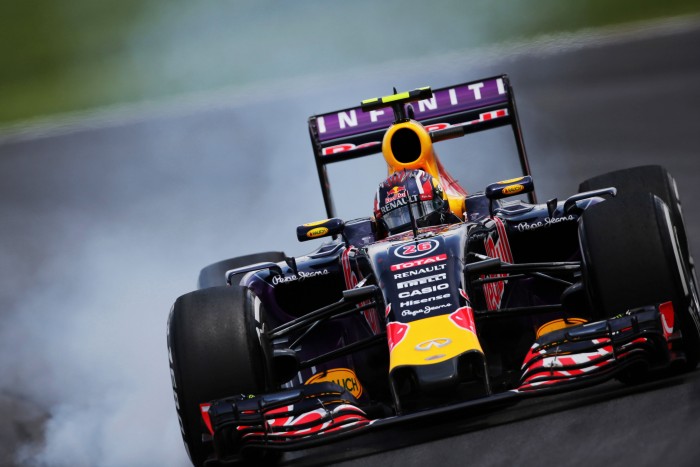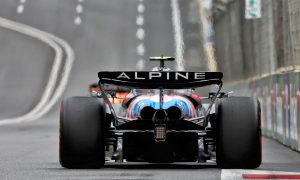
It has emerged that Renault did not use its full token allocation on the engined which powered Daniel Ricciardo's Red Bull in Brazil.
It was widely thought that the French manufacturer had exploited eleven of its remaining twelve development tokens in its attempt to boost the performance level of its power unit.
But while the FIA did accept the Renault's initial request, it actually only used seven tokens on the engine introduced in Brazil, and which forced Ricciardo to take a grid penalty.
Renault apparently focused its efforts on the internal combustion engine, while the outstanding balance of tokens is to be devoted to work on the unit's turbocharger. Limited part production and compatibility with the unit's exhaust system were the reasons for the partial upgrade.
Should Renault decide to introduce a fully upgraded engine at the season finale in Abu Dhabi, Red Bull would have to decide once again whether the increased specification would be worth the subsequent grid penalty.
With the aim of collecting data and enjoying a head's start on its 2016 engine program, Renault would certianly encourage the move, while Red Bull would probably also agree given the pair's renewed partnership arrangement which appears to be in the works.
In spite of the very public spat which tinted the partnership between the two companies this year, it's is expected that Renault will continue supplying its power unit to Red Bull, albeit in an unbranded guise and in a yet to be defined form of collaboration.
REPORT: Rosberg keeps Hamilton at bay to win in Brazil
AS IT HAPPENED: Brazilian Grand Prix
Use the red tabs on either side of the screen to scroll through more Formula One news and features
Click here for the Podium gallery from the Brazilian Grand Prix
Keep up to date with all the F1 news via Facebook and Twitter






